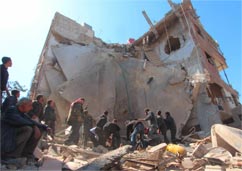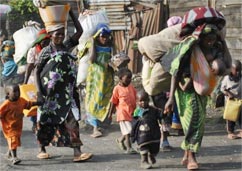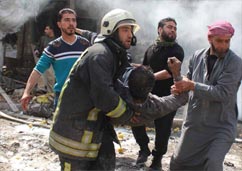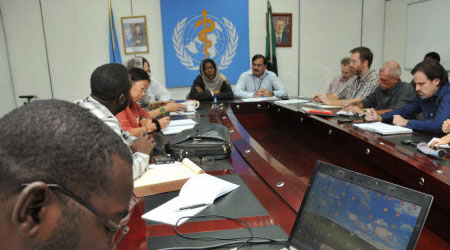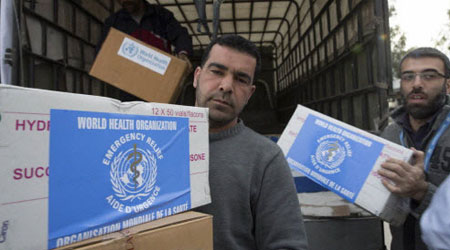موضوعات رئيسية
"إما أن نرحل لأجل فرصة للعيش أو نموت"، كلمات لاجئ سوداني إلى منظمة الصحة العالمية بعد أن وصل مؤخرًا إلى مصر
"إما أن نرحل لأجل فرصة للعيش أو نموت"، كلمات لاجئ سوداني إلى منظمة الصحة العالمية بعد أن وصل مؤخرًا إلى مصر "إما أن نرحل لأجل فرصة للعيش أو نموت"، كلمات لاجئ سوداني إلى منظمة الصحة العالمية بعد أن وصل مؤخرًا إلى مصر القاهرة، 24 أيار/ مايو 2023 - عبر أكثر من 248000 شخص الحدودَ خروجًا من السودان إلى الدول المجاورة، وهي تشاد ومصر وإثيوبيا وجنوب السودان، هربًا من انعدام الأمن الناجم عن القتال الدائر في البلدِ وتعذر الحصول على الخدمات الصحية...
Occupied Palestinian territory health crisis 2023
occupied Palestinian territory health crisis 2023 Since 7 October 2023, the escalating crisis in Israel and the occupied Palestinian territory has caused large numbers of civilian deaths and injuries. In the Gaza Strip, airstrikes and a lack of medical supplies, food, water and fuel have virtually depleted an already under-resourced health...
منظمة الصحة العالمية تقدِّم الدعم الصحي وتقيِّم الاحتياجات الأخرى بعد الحريق الذي دمَّر مخيم التكامل للاجئين في السودان
منظمة الصحة العالمية تقدِّم الدعم الصحي وتقيِّم الاحتياجات الأخرى بعد الحريق الذي دمَّر مخيم التكامل للاجئين في السودان 7 شباط/فبراير 2022 - عاش ما يزيد على 7 من أُسر اللاجئين في السودان أمسية مروعة في 2022 كانون الثاني/ يناير 450، عندما اجتاحت النيران مخيم التكامل الذي يعيشون فيه، وهو ما أدى إلى وفاة شخص وإصابة آخرين بحروق وكسور وتدمير أمتعتهم، إلى جانب أضرار جسيمة أخرى. وما يقرب من نصف الأفراد الذين يعيشون في المخيم، وعددهم 2000، من الأطفال، في حين يمثل كبار السن 32%. وقد أوفدت على وجه...











